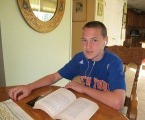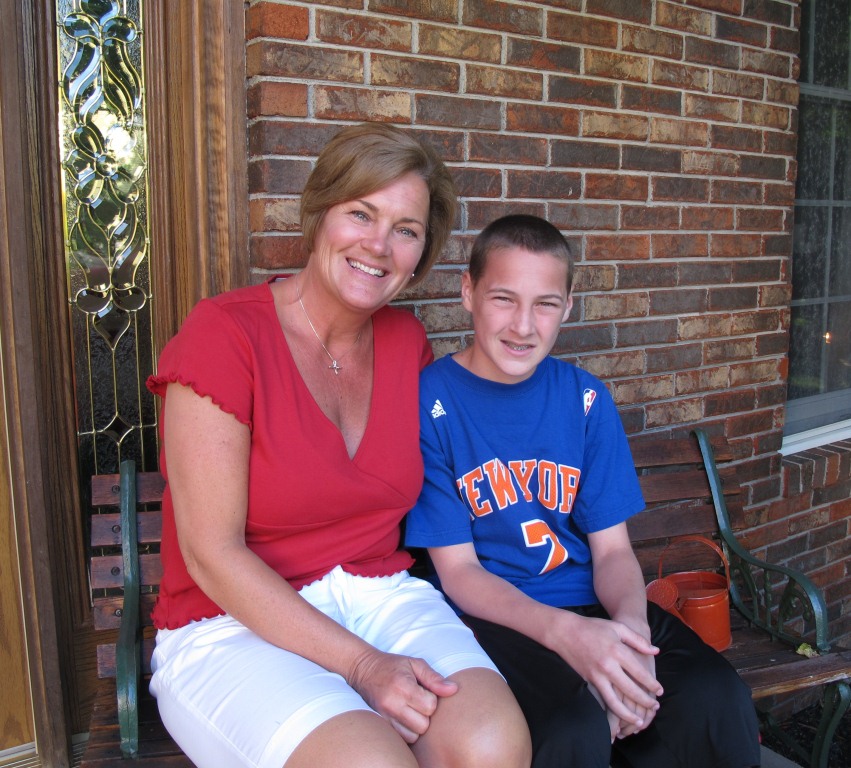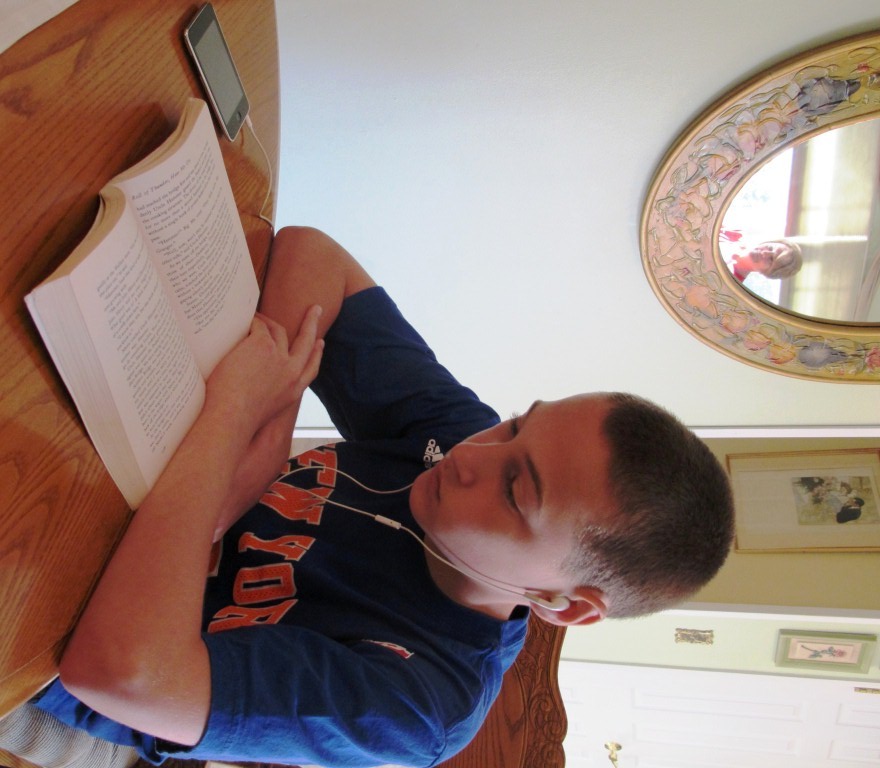
An email came in from Susan D. in New Jersey: “Our son Daniel was diagnosed with dyslexia when he was in 2nd grade. He is now an 8th grade honor student at St. Benedict School in Holmdel, NJ. He does not have the opportunity to be in a resource room for literacy, and funding to private schools is limited, but Learning Ally was able to fill the gaps for him."
Susan's note continued: “Daniel has used many of your resources such as books on CDs and downloads on his iPod for reading assignments. I often show him the success stories posted on Learning Ally's website, and he asked me why there are no students his age. Good question! Daniel has made Honor Roll for the past two years, and has been recommended by a teacher to attend a distinguished conference in Washington DC for academic achievers. Please consider posting all different age success stories. This will certainly motivate the younger members of your organization.”
Wanting to find out more, we visited the pair at their home. Daniel is a soft-spoken middle schooler with a heartwarming smile and bright twinkling eyes. His equally luminous mother speaks with dual perspective as a parent and educator; she teaches fifth grade at a local public school.

The early period of discovery before Daniel’s diagnosis was tough, Susan says, “because naturally you want everything to be perfect for your child. The biggest struggle was in trying to find out exactly what his condition was. At first, auditory processing therapy was recommended for him. My background as an educator helped me; I knew that something just wasn’t quite what they were suggesting it was. When we had Daniel re-evaluated privately by a developmental pediatrician, he got his diagnosis of dyslexia.”
He’s no longer depending on me to say, ‘It’s time for you to sit down and read."
For Daniel’s part, he started to feel that something was ‘different’ about himself in first or second grade. “The words were backwards on the page,” he says. "I would read a word like 'bed' and get the 'b' and 'd' mixed up. It made me feel like I was not smart. . .not like the other kids.”
When Daniel was younger, Susan used to read to him all the time. Even when he would try to read himself, he would stumble on big words and keep on having to go back to her for help. “All the while I was reading to him,” she says, “I was able to see if he was understanding the material, and I could do spot checks.” But she admits that all of that reading could sometimes become tiring and stressful, as it absorbed a lot of family time.
At a disabilities awareness event in the area a few years ago, the family discovered Learning Ally (when it was known as Recording for the Blind & Dyslexic). During the years since Daniel became a member, Susan has flagged some major changes.

“The biggest thing it gave him is a sense of independence,” she says. “His grades improved and he did well with his assignments. And we’re finding now that he’s older, he’s developing another skill: budgeting his own time and pacing himself. He’s no longer depending on me to say, ‘It’s time for you to sit down and read.’ Now he can take ownership and do it himself. We have his books on his iPod now; they’re all there and he can go to town with it.
“As a bonus, it’s a lot less pressure on me now that I don't have to read for him all the time. But what's most fulfilling is that his grades got better – without me. I didn’t want them to be ‘my’ grades, or me preparing him for those tests, assignments and reports. Now I can say he is doing the work himself, and we are so proud of him for that.”
For his part, Daniel, says that reading has become easier, “not a struggle,” and that he's happy to be keeping up with his classmates. On that point, he might be displaying some modesty: In 7th grade, he scored a
97 in Integrated Language Arts (ILA). To younger kids who are just discovering they may have dyslexia or some kind of learning difference, Daniel says he would tell them “Keep on practicing with reading. It doesn’t mean you’re totally different. You may be less good than other kids at reading, but much better than them at something else.”
“Over the years, we’ve learned to accept and even love his dyslexia," Susan says, "because we’ve learned there are ways to get through that. We are proud of Daniel and his accomplishments, and we’ve never looked at dyslexia as something that has stopped him. It’s important for other kids in the classroom to know that not everyone learns in the same way. It doesn’t mean that you’re not smart, just that you learn differently. Parents need to know that services like Learning Ally are out there.”
When did your child (or you) start to feel like something was "different" . . . and how did you handle it? We invite your answer in the blog comments below.